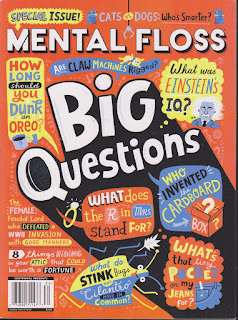 |
| Ivan Doig |
Most Important Book: If Ann Patchett's little book The Care and Feeding of an Independent Bookstore, containing two essays and one list of book recommendations, inspires just one person to open a bookstore somewhere, its importance will be demonstrated.
Most Daunting Book: Bill Bryson's A Short History of Nearly Everything wasn't particularly daunting for me, but it must have been so for Bryson. He is not a scientist but rather a professional writer best known for his humorous travel books. Yet here he wrote a long history of science, virtually every field of science, and explained difficult concepts in language for the layman.
Most Familiar Book: I read Mario Puzo's The Godfather even before they made the movie, and I have seen that movie several times. So when I reread the novel this year, the story was certainly familiar. Yet I was most struck by those forgotten passages that were left out of the movie. The Johnny Fontaine character figures much more prominently in the novel, for example.
Most Incomprehensible Book: John Brockton solicited essays about the most brilliant ideas in science and assembled them in a book called This Idea Is Brilliant. I enjoyed most of this book, but some of those essays were way over my head.
Most Beautiful Book: There are many contenders for this title, but my vote goes to Nobody's Fool by Richard Russo. At the same poignant and comic, the novel explores the invisible strings that tie us together. Beautiful.
 |
| Rob Bell |
Most Surprising Book: When I began reading Scott Spencer's novel Willing I didn't know it was about a man who takes a sex tour. So that was a surprise. Then I was surprised by how terrific the novel is.
Most Disappointing Book: I expected The Library by Stuart Kells to be much more interesting than it is. It is a history of libraries, after all, a subject that seems up my alley. But the book interested me only in spots.
Most Unpleasant Book: I loved photographer Sally Mann's memoir Hold Still. But then there is her chapter, complete with lots of photographs, about her photographing human bodies in various stages of decomposition out in the open air.
Most Luminous Book: All the Light We Cannot See does not sound like the title of a luminous book, luminosity being light that we can see. Similar in theme to Russo's Nobody's Fool, this great novel by Anthony Doerr is about the powerful influences that unseen people and objects can have over us.










